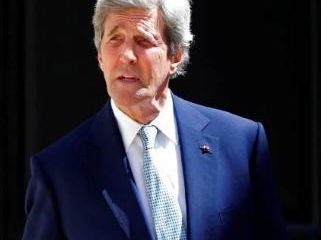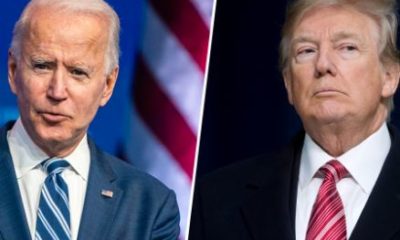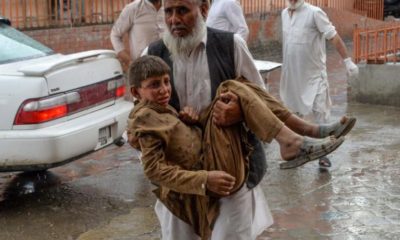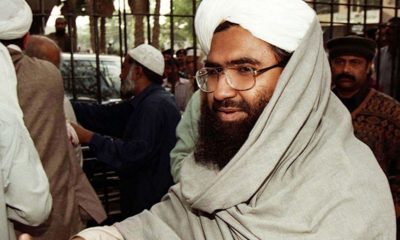World
India calls for transparency and choice in electing UN Secretary-General

By Arul Louis
United Nations: India has called for drastic reforms in the election of the secretary-general to introduce transparency and choice in the process of picking a successor to Ban Ki-moon next year and said it should not be a prerogative of the five permanent members of the Security Council.
India’s delegate Bhartruhari Mahtab told the Security Council on Tuesday that the secret straw polls in the Council should be done away with and discussions should be held in open sessions with the secretary-general providing a summary of the proceedings. Moreover, the Security Council should recommend a slate of two or more candidates on whom the General Assembly can vote, he said.
The UN Charter only says that the secretary-general should be appointed by the General Assembly on the recommendation of the Security Council and a 1946 General Assembly resolution added a provision that only one candidate should be recommended and a debate should be avoided.
This has morphed into an arcane process in which the Security Council members vote on candidate with colour-coded ballots — one colour for permanent members and another for the others. A ballot in the colour of the permanent members automatically results in a veto of a candidate while it won’t be known who cast the veto.
The candidate who gets a majority with the colour-coded ballots of all the five permanent members is recommended to the General Assembly and its vote to approve the candidate is a given.
To make the election transparent, “an important step would also be to do away with secret straw polls using different coloured slips that allow the P5 (five permanent members) to exercise the veto without even taking ownership of it”, Mahtab said.
“My delegation has pressed for the Council to recommend two or more names to the General Assembly,” he added. “While the pronouncements of the General Assembly do not specifically provide for this, there is — in our view — no legal impediment for the Council to do so.”
Mahtab appealed to the non-permanent members of the Security Council to push for changes in the way the secretary-general is elected.
Under the system of rotating the presidency of the Security Council, except for three months next year, the non-permanent will preside over the Security Council next year and it will be for them to decide on whether the selection of the secretary-general will remain the sole preserve of the P5 or not, he said.
Mahtab, a Biju Janata Dal member of the Lok Sabha representing Cuttack in Orissa, is one of the five members of parliament who are currently in India’s UN delegation.
General Assembly President Mogens Lykketoft had told reporters after his inauguration last month that the secretary-general candidates will be presented to the UN members in a timely fashion and they will interact with them. “This will something happening for the first time in the history of the United Nations and I see that as a major step forward,” he added.
However, he sounded tentative on Tuesday only saying that he would work with the Security Council President to begin the process of soliciting candidates and acknowledged that there was “widespread calls for increased transparency, inclusivity and a more rigorous process in selecting the next chief of this Organization”.
On the issue of transparency, Mahtab said, “The most non-transparent of the subsidiary bodies of the Security Council is the 1267 Al Qaeda Sanctions Committee.” Named for the number of the Security Council resolution setting it up, the committee imposes sanctions on terrorists and terrorism supporters.
“No information is shared on the criteria of listing or not listing individuals and organizations on whom sanctions are applied,” Mahtab said. “It is our apprehension that there may, in fact, be no criteria at all. And that any of the 15 members may be allowed to exercise a veto without assigning any reason and without the wider membership being informed of their having done so.”
Earlier this year, China vetoed India’s demand for taking action under Security Council’s anti-terrorism resolution 1267 against Pakistan for releasing Zaki-ur-Rehman Lakhvi, the Lashkar-e-Taiba mastermind of the 2008 Mumbai attack.
“In April this year, the new Chair of the 1267 Committee organised a briefing for the wider membership of the UN and said that he would do so periodically,” Mahtab said. “No meeting has, however, since been held. His predecessor had also kept the work of the Committee cloaked in secrecy.” The current chair of the committee is Gerard van Bohemen, the Permanent Representative of New Zealand.
National
Foodman Vishal Singh Honored for Hunger Free World Mission in Bangkok

Lucknow: Vishal Singh, a renowned social worker from Lucknow, also known as Foodman, has once again made India proud. He was honored by the Happy Hands Gloves Cooperative Limited Company in Korathai, Thailand, for his work with the Hunger Free World Mission.
The Hunger Free World Mission’s meeting was held in Korathai, Thailand, under Vishal Singh’s leadership. Representatives from several countries, including Mr. Raja Dwivedi (Managing Director of Happy Hands Gloves Limited), Thailand Coordinator Mr. Raja Mishra, and member Mr. Varun Singh, attended the event.

Under Vishal Singh’s leadership, the attendees took a pledge to work together toward creating a hunger-free world.
Speaking on the occasion, Vishal Singh explained that the main goal of the Hunger Free World Mission is social participation. He said the mission is not just about feeding people but also about meeting other basic needs of those who are struggling. The mission focuses on helping families of terminally ill patients in hospitals by providing food and shelter. It also works to fulfill essential needs like education, jobs, and care for the elderly.
For the last 16 years, the Vijay Sri Foundation has been providing free services, benefiting thousands of people. Vishal Singh highlighted that the mission aims to gain global recognition like other organizations such as WHO, WWF, and Red Cross, which work for social causes.
During this meeting, Vishal Singh was appointed as the Chairman of the Hunger Free World Mission by representatives from various countries. They also discussed holding regular meetings in different countries to push the mission forward.
Business tycoon Dr. Abhishek Verma has also supported this humanitarian mission, vowing to promote the idea of “Seva Parmo Dharma” (Service is the highest duty) worldwide. Vishal Singh praised him, stating that people like Dr .Abhishek Verma inspire others to work for the betterment of society.
Recently, Romania’s Ambassador, Mr . Daniela Sezonov Ţane, invited Vishal Singh to the Romanian Embassy in Delhi, where they discussed the mission in detail. Impressed by his humanitarian work, she honored Vishal Singh and invited him to Romania to take the mission forward .
Food man Vishal Singh has been serving the people of India for the past 16 years. Through the Vijay Sri Foundation, he provides free meals to cancer patients & their families ,shelter, and education for women & children along with running free old-age homes in Lucknow.
In addition to his humanitarian work, Vishal Singh also addresses issues like crime and corruption through his role as Chairman of Seva Path Media and Managing Director of Vijay Sri Foundation.

During the COVID-19 pandemic, Vishal Singh and his team worked tirelessly to provide food and help to the needy, including starving children, elderly citizens, and pregnant women. Despite contracting the virus himself, he continued to assist others after his recovery. He even created a life-saving oxygen regulator using household items, which was praised by doctors both in India and abroad.
In his address at the meeting, Vishal Singh spoke about his mission to create a hunger-free world. He pointed out that India’s large population, along with issues like unemployment and poverty, has caused the country to fall on the Hunger Index. He urged people to contribute just one handful of grains daily to help create a hunger-free world.
He concluded by saying that through social participation, we can empower the people around us, meet their basic needs, and work together to build a stronger, more prosperous, and developed society.























